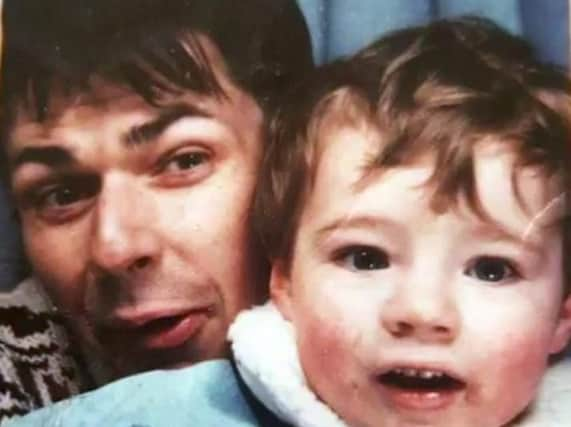Hundreds caught HIV 'over failure of England to seek help from Scotland' in manufacturing blood products


Hundreds of haemophiliacs could have been spared infection with HIV if England had sought help from Scotland in manufacturing blood products, new documents suggest.
A letter dated January 1990 shows Scotland had previously had spare capacity to help England produce the much-need blood product Factor VIII, but Government officials in England rejected the idea.
Advertisement
Hide AdAdvertisement
Hide AdInstead, England continued to import large amounts of Factor VIII from risky sources abroad, including US prisoners and drug addicts who were infected with diseases including HIV.
The contaminated blood scandal has been labelled the worst treatment disaster in the history of the NHS, leaving thousands of patients infected with hepatitis and HIV, and causing many early deaths.
Most of those involved had the blood-clotting disorder haemophilia and relied on regular injections of Factor VIII to survive.
Contaminated Factor VIII
But they were unaware they were receiving contaminated Factor VIII and, despite repeated warnings, continued to be given the product throughout the 1970s and 1980s.
The latest document was released under the Freedom of Information Act to campaigner Jason Evans, whose father died in 1993 having contracted hepatitis and HIV.
In it, Professor John Cash, a former director of the Scottish Blood Transfusion Service, said the decision not to use Scotland’s spare capacity to produce Factor VIII for England was “a grave error of judgement”.
Scotland had been virtually self-sufficient in the manufacture of its Factor VIII which took place at the Protein Fractionation Centre (PFC) in Liberton, Edinburgh.
The letter said the Scottish PFC had had “very substantial” spare capacity, which had been verified during an experiment at the centre.
Advertisement
Hide AdAdvertisement
Hide AdProf Cash wrote: “It was assumed by those of us on the shop floor that this experiment would expedite arrangements to give England and Wales assistance, but nothing materialised.”
Prof Cash also spoke of “serious defects in the operational liaison” between the Scottish Home and Health Department and the Department of Health and Social Services in England.
He had attempted to “persuade on numerous occasions” those higher up of the need for joint working, but to no avail. He added: “I sense the ineptitudes of the past – 1970s and 1980s – are about to catch up with us.”
'Incredible piece of evidence'
Mr Evans, founder of the Factor 8 campaign group, said: “This is an incredible piece of evidence. We have testimony in black and white here, from a very senior source, which effectively shows hundreds of HIV infections within the haemophilia community could and should have been prevented.
“The statistics say it all – 59 haemophiliacs were infected with HIV in Scotland, as opposed to 1,243 in England, where a high proportion of HIV-infected Factor VIII from the US was used.
“It fills me with a distinct sense of horror that so many of these people would still be alive if it were not for the total negligence that took place.”
Des Collins, senior partner of Collins Solicitors, representing 1,400 victims and families, said self-sufficiency in Factor VIII is one of the main issues being investigated by the existing public inquiry taking place into contaminated blood. He added: “It is obvious that had the UK produced more of its own Factor VIII products, which this evidence makes clear was entirely possible, there would have been far fewer HIV infections.”
In 2016, former health minister Lord Owen said his pledge to make the country self-sufficient in Factor VIII was scrapped in the dawn of the first Thatcher government.
Advertisement
Hide AdAdvertisement
Hide AdHe said: “That programme was effectively starved of money, blocked and they gave up self-sufficiency”.
A Department of Health and Social Care spokeswoman said: “The infected blood tragedy should never have happened and the inquiry was set up to get to the truth and give families the answers they deserve.
“We are committed to being open and transparent with the inquiry and have waived the usual legal privileges to assist the process.”